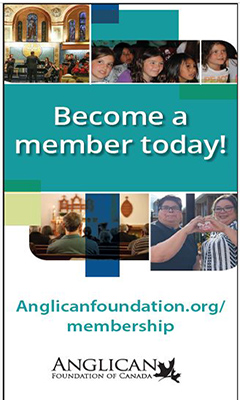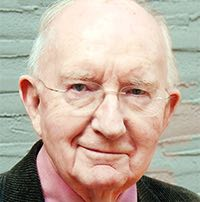Convention Hall, Philadelphia, May 1984
The Episcopal Diocese of Pennsylvania celebrated its bicentennial in 1984. About 10,000 people gathered in Convention Hall in Philadelphia. I recall it was a warm evening.
The mood, as you might expect, was festive. After all, it is no mean feat for an institution to have journeyed through two hundred years of a history that was at times stormy and divisive. Between 1784 and that evening of 1984, great tides of social change had swept through the church’s life. All of this history was present as the hour for the celebration neared.
In a sense, my role was simple. This Choral Evensong would have two homilies, one near the opening of the service and one near the end. For the first homily, I was responsible. Apart from my being surprised at the invitation to speak on this occasion, there was something far more significant on my mind. The second homily was to be given by Archbishop Desmond Tutu.
I had met Desmond some years before he had become the world figure he now was. As Dean of Christ Church Cathedral in Vancouver, I had invited him to be our preacher while he was visiting the city to give some addresses. Some years later, I shared a speaking engagement with him at the World Council of Churches. Since that time, he had become nothing less than a world figure. He had taken a leading role in the struggle against apartheid in his homeland, often at great personal risk to his own life. For his courage and commitment to that vast struggle, he had very recently been given the Nobel Peace Prize.
While meeting Desmond again at the bicentennial was just as pleasant as our former meeting in Vancouver, I was very aware that for this huge gathering, his was the significant voice of the evening. I had to trust that what I had prepared would be worthy of the occasion.
The evening has remained memorable for me, not only because I was given the privilege of sharing it with Desmond Tutu but for two particular moments in his presence. The first is typically Desmond and, for me, it echoes still in the laughter of that great crowd. When he stepped to the microphone to speak, the arena had become very warm. Desmond decided to do something totally unexpected. In a hushed and solemn tone, his very first words were, “My friends, I wish to tell you a story about a clergyman who was in bed one night with his wife.”
To say that Desmond got the audience’s attention is an understatement. That single statement was so utterly unexpected, coming from so eminent a figure on such a solemn occasion, it electrified the arena. You could also feel a ripple of discomfort. Was this visitor going to spoil this special evening? How could this levity possibly serve the occasion? With perfect timing Desmond then added “She turned to him and said, ‘Darling, I cannot get to sleep; preach me one of your sermons.’ ”
The place exploded with laughter. All was well. Everyone relaxed, and, most important of all, Desmond had this great crowd in the palm of his hand. It was masterly. He then proceeded to give a magnificent plea for the life of the church to be characterized by its commitment to justice of every kind in contemporary society.
Then came a second moment that I treasure. As the procession came down the steps from the specially built sanctuary area, Desmond and I were walking together. He turned to me and expressed warm appreciation of what I had said, then requested a certain quote that I had used. I said he was most welcome and I would give it to him in the robing room, but I was suddenly moved by the fact of being in his presence.
At that time there had been many news items in the media about his South African struggle. It was well known that Desmond had, on more than one occasion, risked his life to stop what had become known as the tire burnings, a style of execution where a tire filled with gasoline and set on fire was thrown over a victim’s head and shoulders.
Suddenly I became acutely aware that I was beside a person who showed such courage in the name of Christ. I said, “Desmond, I speak in a world very different from the world you know. For the most part I receive appreciation. You sometimes speak at the risk of your life. For all of us, thank you, my friend. Thank you.”
For a moment he put his hand on my shoulder and we came down together.



